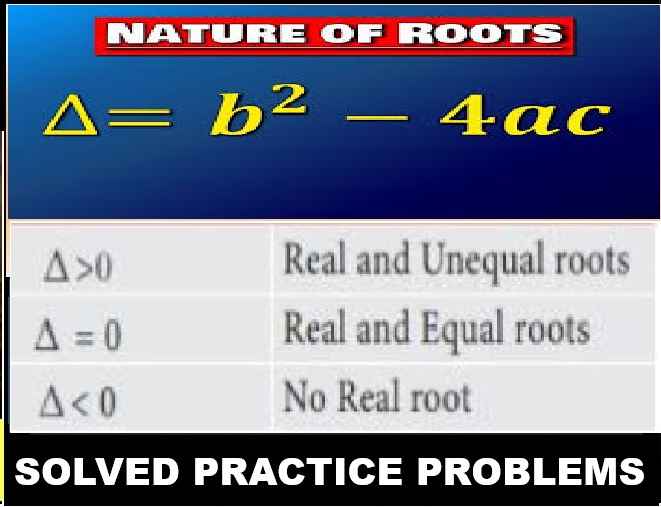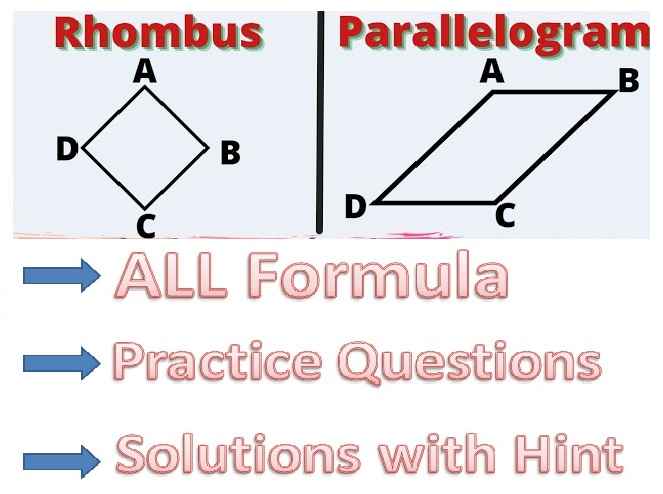Upthrust in Fluids, Archimedes’ Principle and Floatation Exe-5B Relative Density and it’s Measurement by Archimedes’ Principle Numericals Answer Type for Class-9 ICSE Concise Physics. There is the solutions of Numericals Answer type Questions of your latest textbook which is applicable in 2025-26 academic session. Visit official Website CISCE for detail information about ICSE Board Class-9.
Upthrust in Fluids, Archimedes’ Principle and Floatation Exe-5B Numericals Answer
(ICSE Class – 9 Physics Concise Selina Publishers)
| Board | ICSE |
| Class | 9 |
| Subject | Physics |
| Writer / Publication | Concise selina Publishers |
| Chapter-5 | Upthrust in Fluids, Archimedes’ Principle and Floatation |
| Exe – 5B | Relative Density and it’s Measurement by Archimedes’ Principle |
| Topics | Solution of Exe-5(B) Numericals Answer Type |
| Academic Session | 2025-2026 |
Exe-5B Relative Density and it’s Measurement Numericals Answer Type
Ch-5 Upthrust in Fluids, Archimedes’ Principle and Floatation Physics Class-9 ICSE Concise
Page 129
Que-1: The density of copper is 8.83 g cm-3. Express it in kg m-3.
Ans: 1 Density of copper in C.G.S. = 8.83 gcm-3
Density of copper in S.I. = 8.83/1000×100-3
= 8830 kgm-3
Que-2: The relative density of mercury is 13.6. State its density in (i) C.G.S. unit and (ii) S.I. unit.
Ans: R.D. of mercury = 13.6
(i) Density in C.G.S. = 13.6 gcm-3
(ii) Density in S.I. = 13.6 × 103 kgm-3
Que-3: The density of iron is 7.8 x 103 kg m-3. What is its relative density?
Ans: Density of iron = 7.8×103 kgm-3
Density of iron in C.G.S = 7.8 gcm-3
R.D. = Density of C.G.S. (without unit) = 7.8
Que-4: The relative density of silver is 10.8. Find its density.
Ans: R.D. of silver = 10.8
Density of silver in C.G.S. = 10.8 gcm-3
Density in S.I. = 10.8 × 103 kgm3
Que-5: Calculate the mass of a body whose volume is 2 m3 and relative density is 0.52.
Ans: R.D. of silver = 0.52
Volume = 2 m3
Density of body in S.I. = 0.52 × 103 kgm3
∴ Mass = Density × volume = (0.52 × 103) × 2 = 1040 kg
(Upthrust in Fluids Exe-5B Numericals ICSE)
Que-6: Calculate the mass of air in a room of dimensions 4.5 m × 3.5 m × 2.5 m if the density of air at N.T.P. is 1.3 kgm-3 .
Ans: Volume of air = 4.5×3.5×2.5 m3
Density pf air at NTP = 1.3 kgm3
Mass of air = Density × volume
Or Mass = (1.3) × (4.5 × 3.5 × 2.5) = 51.19 kg
Que-7: A piece of stone of mass 113 g sinks to the bottom in water contained in a measuring cylinder and water level in cylinder rises from 30 ml to 40 ml. Calculate R.D. of stone.
Ans: Mass of stone = 113 g
Rise in water level = (40 – 30) ml = 10 ml
This rise is equal to the space occupied (volume) by the stone .
∴ volume of stone = 10 cm-3
Density of stone in C.G.S. = Mass/Volume = 113/10
=11.3 gcm-3
R.D. = 11.3
Que-8: A body of volume 100 cm3 weighs 1 kgf in air. Find: (i) Its weight in water and (ii) Its relative density.
Ans: Volume of body = 100 cm3
Weight in air , W1 = 1 kgf = 1000 gf
Mass of body = 1 kg = 1000 g
R.D. of solid = 10
R.D. of water = 1
(i) Let W2 be the weight of the body in water.
R.D. of body = R.D. of waterW1/W1-W2 × R.D. of water
or , 10 = 1000(1000- W2)×1
or , 10(1000 – W2) = 1000
or , 1000 – W2 = 100
or , W2 = 900 gf
(ii) R.D. of body = Density in C.G .S. (without unit)
or , R.D. = Mass/Volume = 1000/100
= 10
Que-9: A body of mass 70 kg, when completely immersed in water, displaces 20,000 cm3 of water. Find: (i) The mass of body in water and (ii) The relative density of material of the body.
Ans: Weight of body = 70 kg
Volume of water displaced by body = 20,000 cm3 = 0.02 m3
(i) Mass of solid immersed in water = mass of water displaced
Mass of solid immersed in water = Density of water × Volume of water displaced
Mass of solid immersed in water = 1000 kgm-3 × 0.02 m3 = 20 kg
(ii) R.D. of solid = Density in C.G.S. (without unit)
Density in C.G.S. = mass/volume =70 × 1000/20,000
=3.5 gcm3
R.D. = 3.5
Que-10: A solid weighs 120 gf in air and and 105 gf when it is completely immersed in water. Calculate the relative density of solid.
Ans: Weight of solid in air , W1 = 120 gf
Weight of solid when completely immersed in water W2 = 105 gf
R.D. of solid = R.D. of waterW1/W1-W2 × R.D. of water
R.D. of solid = 120/120-105×1
R.D. of solid = 8
(Upthrust in Fluids Exe-5B Numericals ICSE)
Que-11: A solid weighs 32 gf in air and 28.8 gf in water. Find: (i) The volume of solid, (ii) R.D. of solid and (iii) The weight of solid in a liquid of density 0.9 g cm-3.
Ans: Weight of solid in air , W1 = 32 gf
Weight of solid when completely immersed in water W2 = 28.8 gf
(i) Volume of solid = Mass / density of solid
= 32/10 = 3.2 m3
(ii) R.D. of solid = W1/(W1-W2) x R.D. of water
R.D. of solid = 32/(32-28.8)×1
R.D. of solid = 10
( iii) Weight of solid in liquid fo density 0.9 gcm-3 = W3
R.D. of solid = = W1/(W1-W3) x R.D. of liquid
or , 10 = 32/(32-W3)×0.9
or , W3 = 29.12 gf
Que-12: A body weighs 20 gf in air and 18.0 gf in water. Calculate the relative density of the material of the body.
Ans: Weight of body in air , W1 = 20 gf
Weight of body when completely immersed in water W2 = 18 gf
R.D. of body = W1/(W1-W2) x R.D. of water
R.D. of body = 20/(20-18)×1
R.D. of body = 10
Exe-5B Relative Density and it’s Measurement Numericals Answer Type
Ch-5 Upthrust in Fluids, Archimedes’ Principle and Floatation Physics Class-9 ICSE Concise
Page 130
Que-13: A solid weighs 1.5 kgf in air and 0.9 kgf in a liquid of density 1.2 x 103 kg m-3. Calculate R.D. of solid.
Ans: Weight of body in air , W1 = 1.5 kgf
Weight of body when completely immersed in liquid W2 = 0.9 kgf
Density of liquid = 1.2 × 103 kgm-3
R.D. of liquid = 1.2
R.D. of body = W1/(W1-W2) x R.D. of liquid
R.D. of body = 1.5/(1.5-0.9)×1.2
R.D. of body = (1.5/0.6)×1.2
R.D. of body = 3
(Upthrust in Fluids Exe-5B Numericals ICSE)
Que-14: A jeweler claims that he makes ornaments of pure gold that has a relative density of 19.3. He sells a bangle weighing 25.25 gf to a person. The clever customer weighs the bangle when immersed in water and finds that it weighs 23.075 gf in water. With the help of suitable calculations, find out whether the ornament is made of pure gold or not.
Hint : Calculate R.D. of the material of the bangle.
Ans: R.D. of pure gold = 19.3
Weight of bangle in air, W1 = 25.25 gf
Weight of bangle when completely immersed in water W2 = 23.075 gf
R.D. of bangle = W1/(W1-W2) x R.D. of water
R.D. of bangle = 25.25/(25.25 – 23.075)×1
R.D. of bangle = 11.6
The bangle is not made of pure gold as its density is not 19.3.
Que-15: A piece of iron weighs 44.5 gf in air. If the density of iron is 8.9 × 103, find the weight of iron piece when immersed in water.
Ans: Density of iron = 8.9 × 103 = 8900
Density of water = 1000
Weight of iron when immersed in water is given by
Weight of iron in water = Weight of iron in air × (1 – density of water/density of iron)
= 44.5 gf × (1 – 1000/8900)
= 39.5 kgf
Que-16: A piece of stone of mass 15.1 g is first immersed in a liquid and it weighs 10.9 gf. Then on immersing the piece of stone in water, it weighs 9.7 gf. Calculate:
(a) The weight of the piece of stone in air,
(b) The volume of the piece of stone,
(c) The relative density of stone,
(d) The relative density of the liquid.
Ans: (a) The mass of stone is 15.1 g. Hence, its weight in air will be Wa = 15.1 gf
(b) When stone is immersed in water its weight becomes 9.7 gf. So, the upthrust on the stone is 15.1 – 9.7 = 5.4 gf, Since the density of water is 1 g cm-3, the volume of stone is 5.4 cm3.
(c) Weight of stone in liquid is Wl = 10.9 g
1. Weight of stone in water is Ww = 9.7 gf
2. Therefore, the relative density of stone is
3.

— : End of Upthrust in Fluids, Archimedes’ Principle and Floatation Exe-5B Numericals Answer Type Solutions :–
Return to Concise Selina Physics ICSE Class-9 Solutions
Thanks
Please share with your friends


